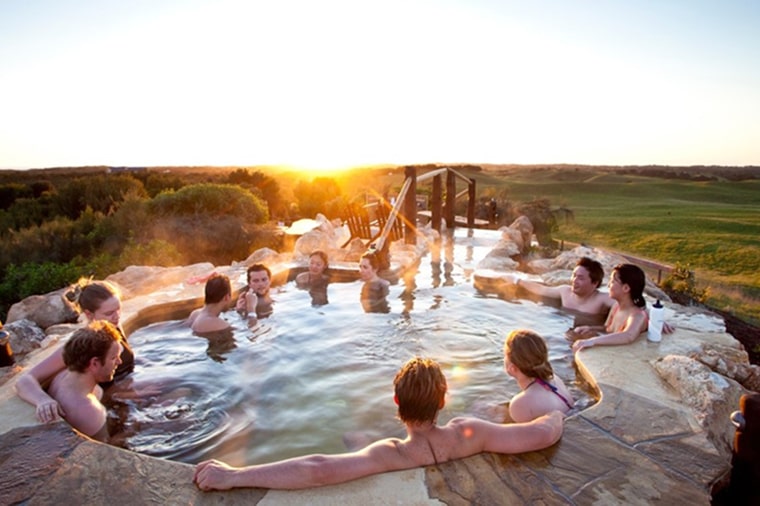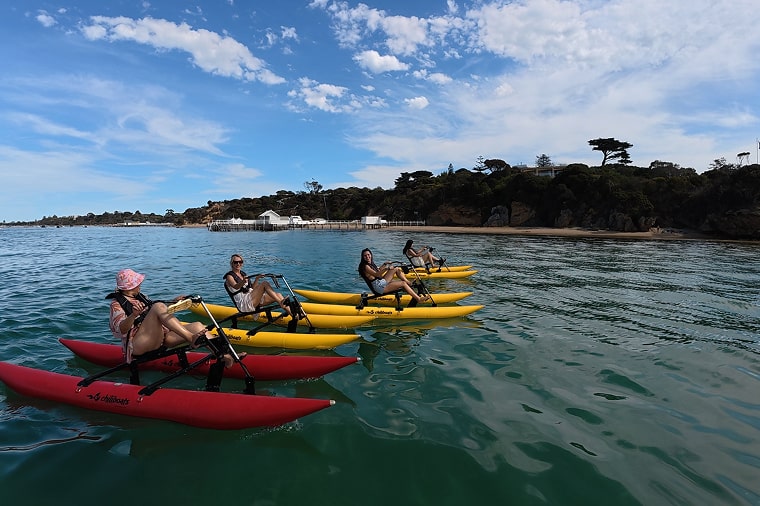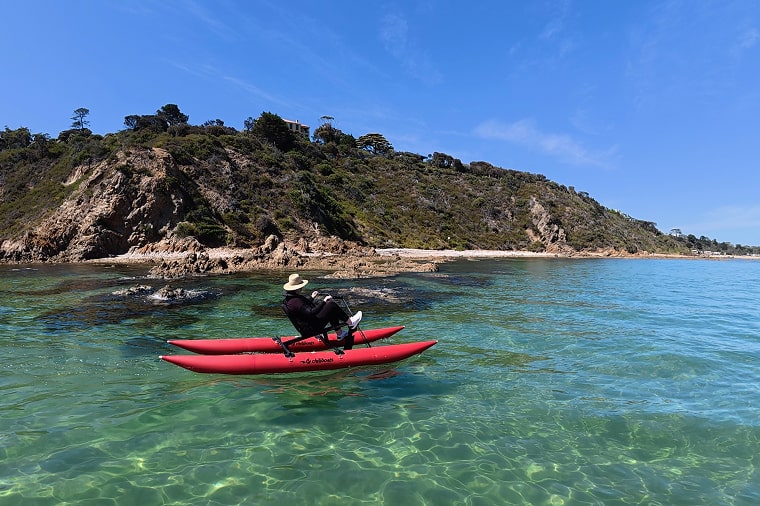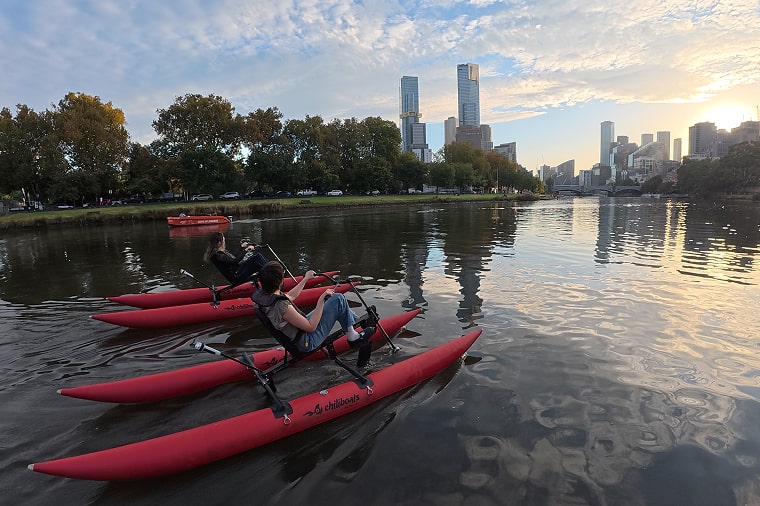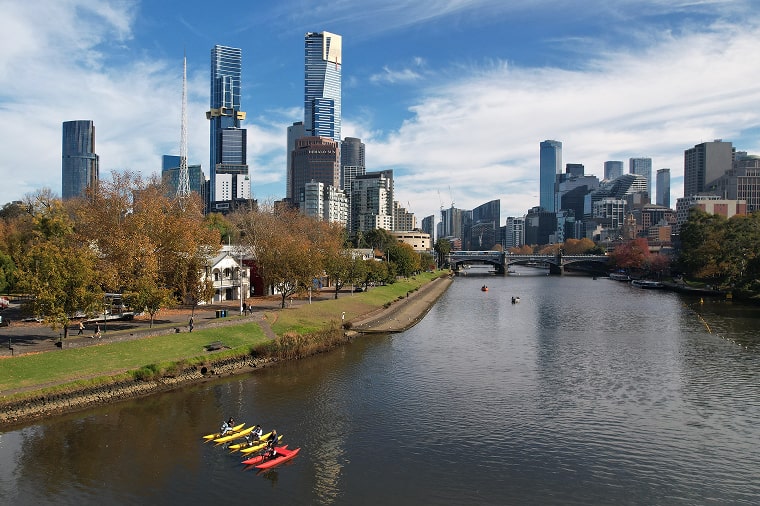When we think about water sports, many of us imagine an adrenaline rush, waves crashing, and a need for immense physical strength and dexterity. Yet, there’s one water sport that not only offers serenity and connection with nature but is also evolving rapidly to include participants of all abilities – waterbiking. At the forefront of this evolution in Waterbikes Australia, an exciting avenue that opens the door to everyone, regardless of their physical or cognitive abilities.
For NDIS Support Workers, understanding waterbiking can transform recreational outings, offering a novel way to engage and uplift those you support. So, let’s dive into the world of waterbiking and discover how we can create a seamless and inclusive experience for everyone.
1. Understanding Waterbiking
Firstly, what is waterbiking? Waterbiking, in its simplest form, is a bike mounted on floatation devices, allowing you to pedal on water. It offers a beautiful blend of cycling and water sports, making it a unique way to experience nature.
Adaptive waterbiking, as the name suggests, is about customising this experience to cater to those with varying abilities. With specialised equipment and support strategies, adaptive waterbiking ensures everyone, no matter their abilities or disabilities, can enjoy the freedom of gliding over water.
2. The Benefits of Waterbiking
- Physical Wellness: Just like traditional biking, waterbiking provides an excellent cardiovascular workout, enhancing heart health and muscle strength. For those with mobility issues, it offers a low-impact exercise option, reducing strain on the joints.
- Cognitive Boost: Navigating on water requires focus, coordination, and spatial awareness. Over time, these cognitive exercises can enhance memory, attention, and problem-solving abilities.
- Emotional Wellbeing: The gentle sway of water, the sound of waves, and the expansive horizon can offer immense therapeutic benefits. It reduces stress, enhances mood, and boosts overall mental health.
- Social Interaction: Group waterbiking can nurture social interactions, teamwork, and a sense of belonging. Participants can bond over shared experiences, fostering camaraderie.
3. Making the Experience Inclusive
To ensure that waterbiking is inclusive for all abilities, it’s essential to focus on a few key areas:
- Equipment Customisation: Adaptive equipment, such as modified seating for added support, handles, and specialised pedals, can cater to varying physical needs. Many adaptive waterbikes come with tandem options, allowing support workers or companions to ride alongside, offering assistance when needed.
- Safety Protocols: While waterbiking is relatively safe, ensuring that participants wear life jackets and are aware of water safety rules is crucial. Support workers should be trained in emergency protocols, including assisting participants in the unlikely event of a capsize.
- Skill Development: Not everyone will have the same level of proficiency. Offering training sessions that cater to different ability levels ensures that each participant can enjoy the experience at their own pace.
- Feedback and Iteration: Continuously seek feedback from participants and adapt the experience to their needs. This iterative approach ensures inclusivity and constantly enhances the experience for all involved.
4. Tips for NDIS Support Workers
- Know Your Participant: Understand the unique needs, fears, and aspirations of the person you’re supporting. This will allow you to tailor the experience, ensuring they’re comfortable and enjoy the outing.
- Stay Informed: Engage with local adaptive waterbiking providers. Understand the options available, the equipment they offer, and their safety protocols.
- Encourage Group Activities: Group waterbiking sessions can be an excellent way for participants to meet new people and form bonds. This not only enriches the experience but also aids in social skills development.
- Celebrate Achievements: Whether it’s mastering a new skill or simply enjoying a day out, always celebrate the achievements of those you support. These positive affirmations can boost self-esteem and motivation.
5. The Future of Waterbiking
The world of adaptive water sports, including waterbiking, is constantly evolving. With advancements in technology, we can expect even more sophisticated equipment that caters to a broader range of abilities. Furthermore, as more people become aware of and engage in adaptive waterbiking, the community will grow, leading to more organised events, competitions, and social gatherings centred around this inclusive sport.
In the heart of Australia’s vast coastlines and mesmerising water bodies lies an opportunity for everyone to connect, rejuvenate, and experience the magic of water, irrespective of their abilities. Adaptive waterbiking is more than just a sport; it’s a movement towards inclusivity, towards a world where recreational activities are accessible to all.
For NDIS Support Workers, embracing adaptive waterbiking means opening doors to novel experiences, fostering physical, cognitive, and emotional growth in those you support. As you embark on this journey, remember that every pedal, every ripple, and every smile counts. Here’s to creating waves of change and making the world a more inclusive place, one waterbike at a time!
